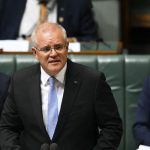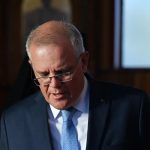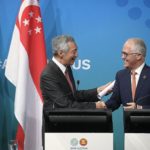Improving health literacy crucial to better health outcomes

Health literacy and self care are vital components of a sustainable healthcare system – but Australia has disturbingly low levels of both. Grant Kardachi considers the fundamental importance of improving Australia’s health literacy.
The great developments we have recently seen, in ensuring people are provided with the best healthcare possible, have come with an attendant danger that patients, at times, expect to be provided with such services without taking any great responsibility for their own wellbeing.
Fundamental to this view is a lack of health literacy which means patients and the community in general do not understand, or are unaware of, many of the services available to them and how to access them and then utilise them. But to begin to address this the community needs to understand what health literacy is.
Basically, health literacy is how we understand and apply information about health and healthcare. It is about how we apply that information to our lives, how we use it to make decisions and how we act on the information.
As such, it is of vital importance. But all too often it is ignored or undervalued.
A 2014 report by the Australian Commission on Safety and Quality in Health Care found: “Low individual health literacy, which means they may not be able to effectively exercise their choice or voice when making healthcare decisions.1 Low individual health literacy is associated with higher use of health services, low levels of knowledge among consumers and poorer health outcomes.2 It has been estimated that people with low individual health literacy are between one-and-a-half and three times more likely to experience an adverse outcome.3”
This was reinforced by a report released in late January by The Mayo Clinic which specifically looked at heart patients. It surmised that people with heart failure have a greater chance of being hospitalised or of dying if they have difficulty in receiving and understanding good health information – in other words, if they have low health literacy.
With the wealth of research highlighting just how important health literacy is, it is disturbing to see how high the rate of ‘illiteracy” is – “almost 60 per cent of adult Australians have low individual health literacy”.
I believe one issue we face is an ingrained assumption that we, as consumers, will be looked after regardless of our own neglect in regards to health matters. Many preventable conditions are creating huge burdens on health budgets – burdens that can be reduced by self care, health literacy, and applying that literacy,
We have to reinforce that health literacy and looking after ourselves is vital to a sustainable health system. As the Australian Commission on Safety and Quality in Health Care report points out, it affects our capacity to make decisions and take action to manage our health.
“It is important for healthcare providers because it affects the way that they manage their relationships with consumers and deliver health care. It is important for managers and policy makers because the complexity of their systems and services can affect the ability of consumers to use those services effectively,” the report says.
“It is also important for the broader society because health literacy contributes to people’s overall health, and consequently their capacity to participate and contribute productively to society. Addressing health literacy can also contribute to reducing health disparities and increasing equity.”
Research has shown that people with low health literacy are generally less able to care for their chronic conditions and use more healthcare services – they have more visits and longer stays. They are also are more likely to engage in unsafe or inappropriate use of prescription or over-the-counter medications. And finally, they are less likely to use preventive health services, which may be because of their difficulty in navigating the health care system.
We need to improve health literacy and the take up of self care; and we need to do it now. This is a challenge for Government now and into the future, and as a priority an investment needs to be made in this area to address these challenges.
- Australian Bureau of Statistics. Health Literacy, Australia. Canberra: Australian Bureau of Statistics, 2008.
- Berkman ND, Sheridan SL, Donahue KE, Halpern DJ, Viera A, Crotty K, et al. Health Literacy Interventions and Outcomes: an Updated Systematic Review. Evidence Report/Technology Assesment No. 199. (Prepared by RTI International– University of North Carolina Evidence-based Practice Center under contract No. 290-2007- 10056-I) AHRQ Publication Number 11-E006. Rockville, MD: Agency for Healthcare Research and Quality, 2011.
- DeWalt D, Berkman N, Sheridan S, Lohr K, Pigone M. Literacy and health outcomes: systematic review of the literature. Journal of General Internal Medicine 2004;19:1228–1239.
Grant Kardachi is a pharmacist and a past National President of The Pharmaceutical Society of Australia (PSA). He currently is a member of the PSA National Board, a member of the board of The Australian Medicines Handbook (AMH) and a member of the board of The Australian Association of Consultant Pharmacy (AACP). He is Chair of the Pharmacy Registering Authority in South Australia (PRASA) and a member of the board of Southern Cross Care, an aged care provider in South Australia and Northern Territory.













Alan Stevenson
February 24, 2018 at 12:55 pm
Our health is our individual responsibility. Let’s face it, even knowing the risks people smoke, drink, take drugs and do too little exercise with very little forethought. Up until May of last year I did almost no exercise, preferring to sit at my computer discussing issues with like-minded individuals around the world. A bottle of red a day was just a pleasant relaxation because I had given up smoking forty years ago and could walk a couple of kilometers without ill effects. Then came the crunch. My new heart valve works fine but the care and attention I received in the hospital allowed me to consider the fragility of life.
I now have an exercise regime which I am told is adequate for my age and weight and I keep to it. Much to my surprise, most people drift back into their old ways very quickly with many getting a second dose, or worse. To me, this shows a degree of contempt for the hard-working doctors and medical staff who put so much time into getting us back onto our feet.
Although I heartily agree with Grant’s ideas I feel that, human nature being what it is, only the individual can make the decision to live a healthy life. There is more than enough information around to enable anyone to be able to live to a decent old age but most of us aren’t really interested until it is too late.